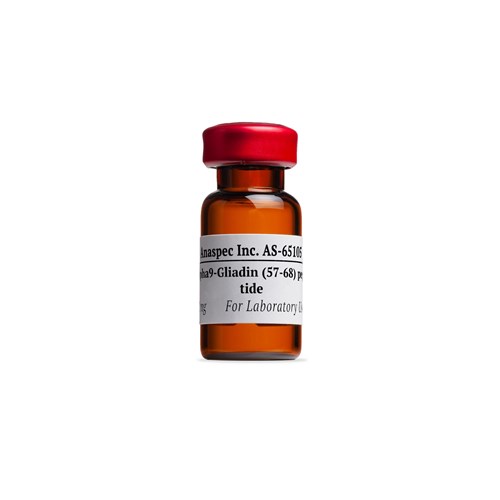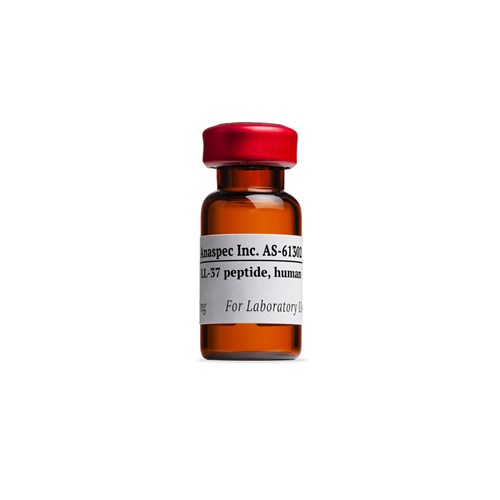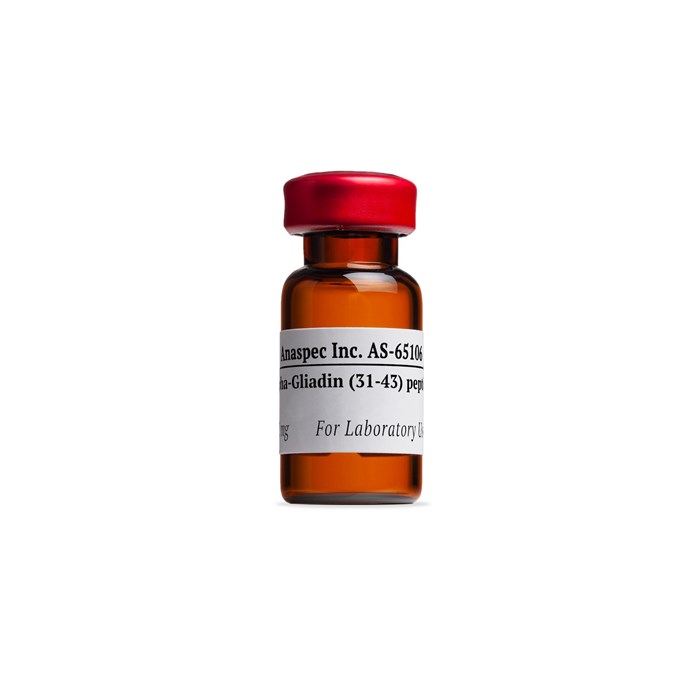alpha-Gliadin (31-43) - 1 mg
- Cat.Number : AS-65106
- Manufacturer Ref. :
-
Availability :
In stock
This peptide is derived from gliadin wheat protein residues 31-43. It elicits an innate immune response by upregulating expression of interleukin (IL)-15 and cyclooxygenase (COX)-2. This peptide also promotes expression of CD25 on monocytes and macrophages, expression of CD83 on dendritic cells, and p38 MAP kinase activation. Treatment with this peptide allows immunodominant epitopes (57-68 and 62-75) to induce T-cell activation and enterocyte apoptosis.
Specifications
| Chemistry | |
| Sequence one letter code |
|
|---|---|
| Sequence three letter code |
|
| Molecular Formula |
|
| Molecular Mass/ Weight |
|
| Modification | |
| Conjugation |
|
| Quantity & Purity | |
| Purity |
|
| Storage & stability | |
| Form |
|
| Storage Conditions |
|
| Activity | |
| Biomarker Target | |
| Research Area | |
| Sub-category Research Area | |
| Usage |
|
| Source | |
| Source / Species |
|
Downloads
You may also be interested in the following product(s)


References
Association between innate response to gliadin and activation of pathogenic T cells in coeliac disease
Lancet . 2003 Jul 05 ; 362(9377) 30 | DOI : https://doi.org/10.1016/S0140-6736(03)13803-2
- L. Maiuri
- et al
Identification of a peptide from α-gliadin resistant to digestive enzymes: Implications for celiac disease
J Chromatogr B . 2007 Aug 15 ; 855(2) 236 | DOI : https://doi.org/10.1016/j.jchromb.2007.05.009
- G. Mamone
- et al
Multiantigenic Peptides as Standards in Immunoassays for Complex Proteins: Use of LGQQQPFPPQQPY in an Enzyme-Linked Immunosorbent Assay for Gluten
Anal Biochem . 2001 May 15 ; 292(2) 301 | DOI : https://doi.org/10.1006/abio.2001.5037
- S. Chambers
- et al

